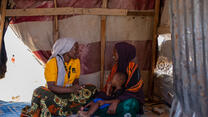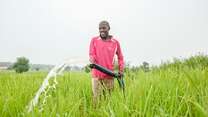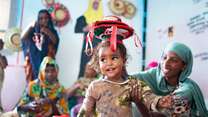WHO WE ARE
The mission of the IRC is to help people whose lives and livelihoods are shattered by conflict and disaster to survive, recover, and gain control of their future. The IRC’s vision is to lead the humanitarian field by implementing high-impact, cost effective programs for people affected by crisis, and shape global policy and practice by sharing our learning and experience with others. All IRC programs are designed to achieve meaningful improvements in people’s economic wellbeing, education, health, safety, and power to influence the decisions that affect their lives.
WHY OUR WORK MATTERS
The evidence base for interventions in crisis-affected contexts is thin. This dearth of evidence means the humanitarian community often relies too often on assumptions, experience, and intuition—rather than fact or evidence—which can result in sub-optimal outcomes and inefficiencies. Several interventions across disciplines have been perceived to work by experts and practitioners, yet rigorous evaluations have subsequently found little or no impact. In cases where evidence is weak or does not
exist, the IRC is committed to generating evidence about what works in humanitarian contexts to increase the effectiveness and efficiency of policies and practices in these settings, and ultimately improve the lives of people affected by crisis.
WHAT WE DO
The IRC maintains a dedicated Research Technical Unit. We seek to generate robust and actionable evidence across different crisis-affected contexts to increase the effectiveness of humanitarian prevention and response efforts. The IRC conducts research with the greatest potential to i) positively, meaningfully, and sustainably impact the largest number of people; and ii) influence the adoption and scale-up of high-impact, cost-effective programs and policies in humanitarian settings. The IRC has been at the forefront of conducting rigorous research in humanitarian settings, and is one of few response organizations conducting impact evaluations in conflict and post-conflict contexts. We partner with multilaterals, international non-governmental organizations, and academics from leading universities to design and implement rigorous research studies. Our research spans five sectors aligned with our priority outcome areas: Economic Wellbeing, Education, Health, Power, and Safety.
RESEARCH OVERVIEW
The IRC generates robust evidence across crisis-affected contexts that:
- Is based on, and contributes to, an existing body of knowledge;
- Fills critical gaps in our understanding; and
- Can inform decision-making and be translated into action.
This document summarizes the IRC’s ongoing and completed research studies. The research presented here is organized by outcome area, with each study listed only once. However, many studies are crosscutting and could apply to more than one outcome.



